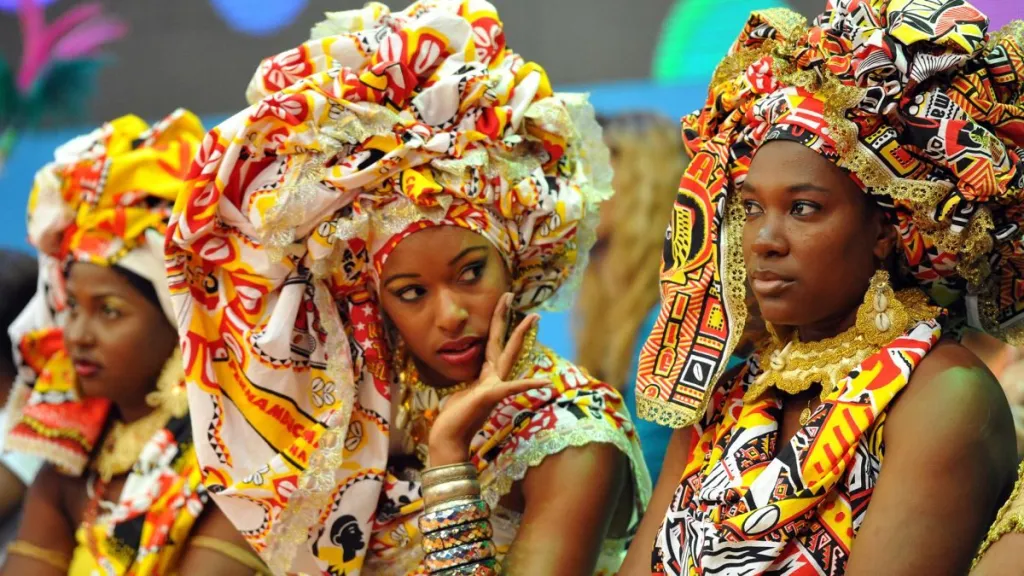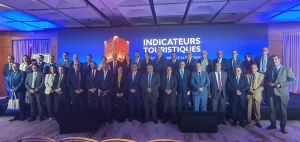Africa is one of the most diverse and culturally rich continents in the world, offering a variety of landscapes, wildlife, historical landmarks, and vibrant cultures that attract millions of tourists annually. However, despite its natural beauty and abundant resources, Africa’s tourism industry remains underdeveloped compared to other regions. The continent faces a range of challenges that hinder the full realization of its tourism potential. These challenges include poor infrastructure, limited connectivity, security concerns, and a lack of marketing.
Nonetheless, significant opportunities exist for Africa to position itself as a leading tourism destination through innovative solutions, investment in infrastructure, and a focus on sustainable and community-driven tourism. This article will explore the key challenges, opportunities, and case studies from countries like Nigeria, Kenya, South Africa, and Rwanda, highlighting how African nations can unlock their tourism potential.
2. Challenges Facing Africa’s Tourism Industry
2.1 Infrastructure Deficit
One of the most pressing challenges facing African tourism is the inadequate infrastructure across many countries. In several regions, roads, airports, and tourism facilities are either outdated or nonexistent. For instance, Nigeria, despite its cultural richness, faces significant challenges in terms of road infrastructure, particularly in rural areas that host key tourist attractions like Yankari Game Reserve and the Obudu Mountain Resort. Limited accessibility makes it difficult for tourists to reach these destinations, affecting visitor numbers.
2.2 Security and Political Instability
Security concerns and political instability have long plagued Africa’s tourism sector. Countries such as Mali and parts of northern Nigeria have experienced terrorist activities, which have deterred potential tourists. Even in relatively peaceful countries, the perception of Africa as a whole is often shaped by media reports on conflict, crime, and disease, overshadowing the potential of countries with stable political environments like Botswana or Ghana.
2.3 Poor Marketing and Branding
Africa has been traditionally underrepresented in global tourism marketing campaigns. Many countries lack cohesive marketing strategies to promote their destinations to international audiences. For example, Nigeria, despite its large diaspora and rich cultural heritage, has not been effectively marketed as a tourism destination. According to the Nigerian Tourism Development Corporation (NTDC), much of Nigeria’s potential is unknown outside the continent. This results in Africa being overshadowed by more established destinations such as Europe and Southeast Asia.
3. Opportunities for Growth in African Tourism
3.1 Increasing Air Connectivity
One of the promising developments in African tourism is the improvement in air connectivity. Initiatives such as the African Union’s Single African Air Transport Market (SAATM), launched in 2018, aim to liberalize air travel across the continent and improve intra-African travel. Better connectivity will facilitate easier travel between African countries and to international destinations, boosting tourist arrivals.
Ethiopian Airlines, for example, has positioned itself as a leading airline in Africa by expanding its network to over 100 international destinations. Countries like Rwanda have also made strides in air transport. The development of Kigali International Airport as a regional hub and the establishment of RwandAir have enhanced Rwanda’s accessibility as a growing destination for eco-tourism and conference tourism.
3.2 The Rise of Sustainable Tourism
Sustainable tourism presents a unique opportunity for Africa to grow its tourism industry while preserving its natural resources and benefiting local communities. Countries like Kenya and Tanzania have embraced eco-tourism, where visitors are encouraged to experience the country’s wildlife and natural beauty in ways that minimize their environmental impact. Kenya’s Maasai Mara and Tanzania’s Serengeti are prime examples where wildlife conservation and tourism intersect to benefit both the environment and local economies.
3.3 Technology and Digital Marketing
The digital revolution has presented new opportunities for African tourism through the use of technology and social media. The rise of platforms like Instagram, YouTube, and Facebook has allowed African destinations to market themselves directly to potential tourists at little cost. In Nigeria, the use of technology has empowered tour operators to reach global audiences. The recent increase in tourism apps and digital platforms has enhanced the ability of small and medium-sized businesses to promote travel packages, cultural events, and local attractions, contributing to the growth of Nigeria’s domestic tourism sector.
4. Case Studies: Success Stories in African Tourism
4.1 Rwanda: A Model for Sustainable Tourism
Rwanda has emerged as a shining example of how strategic tourism development can transform a country’s economy. The government has prioritized tourism as a key pillar of its economic growth. Known as the “Land of a Thousand Hills,” Rwanda has capitalized on its unique offering of gorilla trekking in the Volcanoes National Park. The country has positioned itself as a luxury eco-tourism destination while ensuring that revenues from tourism directly support conservation efforts and local communities.
In addition, Rwanda has focused on conference tourism by constructing the Kigali Convention Centre, which has attracted international events and conferences, further boosting tourism revenue.
4.2 Kenya: Leading the Way in Safari Tourism
Kenya has long been known as a leading destination for safari tourism. With iconic parks such as the Maasai Mara and Amboseli, Kenya attracts hundreds of thousands of tourists every year. The Kenyan government, along with private stakeholders, has invested in improving infrastructure and creating more sustainable tourism practices. By collaborating with conservation organizations, Kenya has been able to protect its wildlife while ensuring that tourism remains a viable and sustainable industry.
The Kenya Tourism Board has also taken advantage of digital marketing, launching campaigns targeting millennial travelers and adventure seekers, further diversifying its tourism base.
4.3 Nigeria: Untapped Potential in Cultural and Domestic Tourism
Nigeria, the most populous country in Africa, holds immense potential for tourism but remains largely untapped on the global stage. Despite the rich cultural heritage, historical landmarks, and diverse landscapes, Nigeria has struggled with infrastructure issues and inconsistent marketing. However, there have been notable successes in domestic tourism, particularly through festivals such as the Osun-Osogbo Festival and the Calabar Carnival, which attract both local and
international visitors.
Efforts are being made to improve tourism infrastructure, including the construction of new airports and hotels, particularly in major cities like Lagos and Abuja. Additionally, Nigeria has great potential for medical and religious tourism, which can be further explored with the right policies and investment.
5. Innovative Solutions for Unlocking Africa’s Tourism Potential
5.1 Public-Private Partnerships (PPP)
Public-private partnerships (PPP) are key to unlocking tourism potential in Africa. By collaborating with the private sector, governments can build and maintain the necessary infrastructure for tourism, such as airports, roads, and hotels. In Nigeria, partnerships with private investors have led to the refurbishment of national parks and the development of luxury resorts.
5.2 Enhancing Security and Stability
One of the most critical aspects of improving tourism in Africa is addressing security concerns. Countries that have experienced instability need to prioritize peacebuilding efforts and ensure that safety measures are in place for tourists. In the case of Rwanda, significant progress has been made in establishing a stable political environment, which has directly contributed to the growth of its tourism sector.
5.3 Promoting Intra-African Tourism
Encouraging Africans to explore their continent is another way to boost the tourism sector. The African Union’s initiative to simplify visa processes across Africa will make it easier for citizens to travel between countries. This will not only promote regional tourism but also create a sense of unity among African nations. Countries like Ghana have introduced visa-on-arrival policies for African nationals, encouraging intra-African travel.
6. Conclusion
Africa’s tourism industry, though rife with challenges, presents significant opportunities for growth. By addressing key issues such as infrastructure, security, and marketing, African countries can unlock their tourism potential. Success stories from countries like Rwanda, Kenya, and Nigeria demonstrate that with the right strategies, Africa can position itself as a leading global tourism destination. Leveraging sustainable tourism, increasing air connectivity, and adopting innovative solutions will be critical to realizing this potential. As the continent continues to develop, tourism will play a central role in economic growth, cultural preservation, and community empowerment across Africa.
Article by Ifedayo Andrew-Ogunbayo







